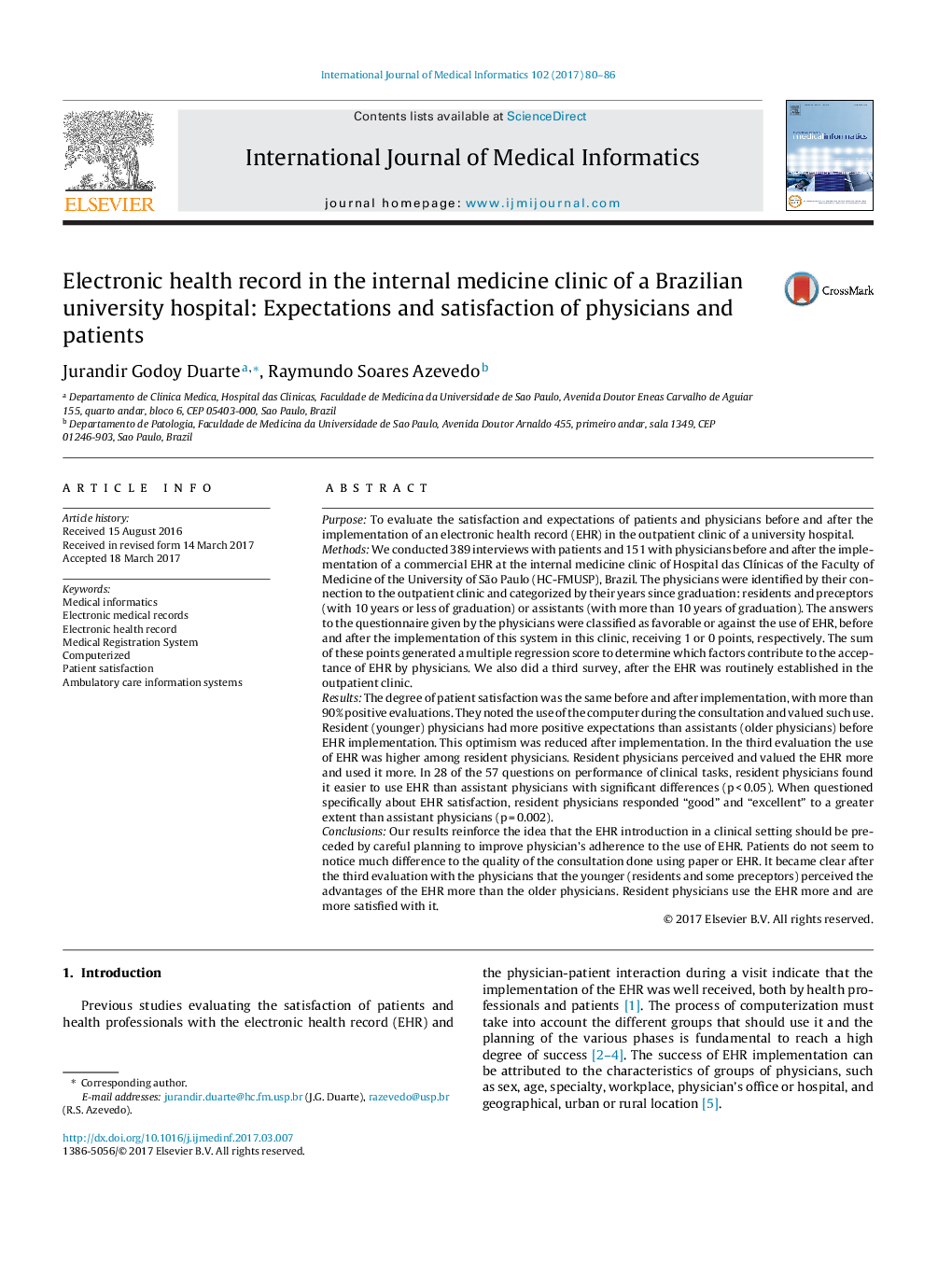| کد مقاله | کد نشریه | سال انتشار | مقاله انگلیسی | نسخه تمام متن |
|---|---|---|---|---|
| 4966642 | 1449086 | 2017 | 7 صفحه PDF | دانلود رایگان |
- We studied an Electronic Health Record (EHR) system in an outpatient clinic of a teaching hospital.
- We interviewed physicians and patients before, after EHR implementation and again four years post implementation.
- Patients did not notice differences before and after, but deemed it important to use technology during the consultation.
- Younger physicians better perceive the utility of systems and tend to use it more.
PurposeTo evaluate the satisfaction and expectations of patients and physicians before and after the implementation of an electronic health record (EHR) in the outpatient clinic of a university hospital.MethodsWe conducted 389 interviews with patients and 151 with physicians before and after the implementation of a commercial EHR at the internal medicine clinic of Hospital das ClÃnicas of the Faculty of Medicine of the University of São Paulo (HC-FMUSP), Brazil. The physicians were identified by their connection to the outpatient clinic and categorized by their years since graduation: residents and preceptors (with 10 years or less of graduation) or assistants (with more than 10 years of graduation). The answers to the questionnaire given by the physicians were classified as favorable or against the use of EHR, before and after the implementation of this system in this clinic, receiving 1 or 0 points, respectively. The sum of these points generated a multiple regression score to determine which factors contribute to the acceptance of EHR by physicians. We also did a third survey, after the EHR was routinely established in the outpatient clinic.ResultsThe degree of patient satisfaction was the same before and after implementation, with more than 90% positive evaluations. They noted the use of the computer during the consultation and valued such use. Resident (younger) physicians had more positive expectations than assistants (older physicians) before EHR implementation. This optimism was reduced after implementation. In the third evaluation the use of EHR was higher among resident physicians. Resident physicians perceived and valued the EHR more and used it more. In 28 of the 57 questions on performance of clinical tasks, resident physicians found it easier to use EHR than assistant physicians with significant differences (p < 0.05). When questioned specifically about EHR satisfaction, resident physicians responded “good” and “excellent” to a greater extent than assistant physicians (p = 0.002).ConclusionsOur results reinforce the idea that the EHR introduction in a clinical setting should be preceded by careful planning to improve physician's adherence to the use of EHR. Patients do not seem to notice much difference to the quality of the consultation done using paper or EHR. It became clear after the third evaluation with the physicians that the younger (residents and some preceptors) perceived the advantages of the EHR more than the older physicians. Resident physicians use the EHR more and are more satisfied with it.
Journal: International Journal of Medical Informatics - Volume 102, June 2017, Pages 80-86
